
Rembrandt van Rijn Self-portrait 1629

What an odd list.
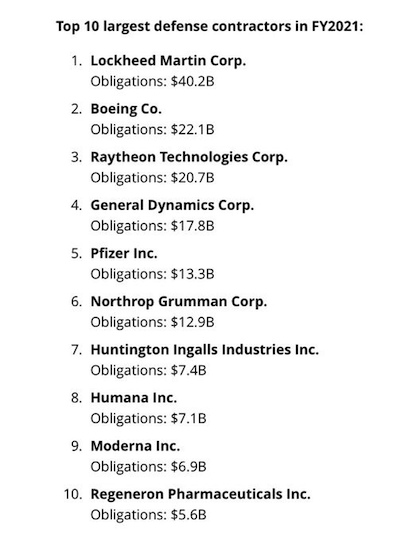

John Maersheimer 2014
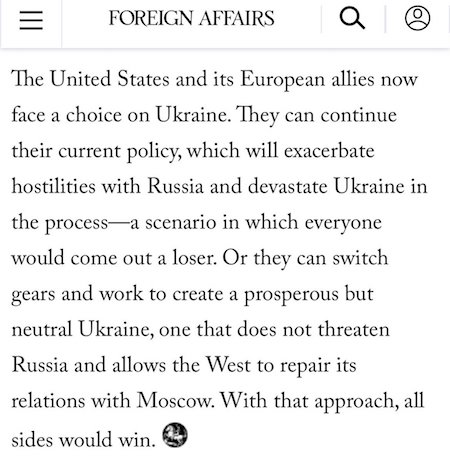

Walker
Warnock: "A patient's room is too … cramped a space for a woman, her doctor, and the US government."
Walker: "There's a baby in that room as well." pic.twitter.com/l5NJO9z7G5
— The Post Millennial (@TPostMillennial) October 14, 2022

“Leave the climate activists glued to the wall. Make it an interactive exhibit by allowing patrons to throw tomato sauce at them and donate the proceeds to planting trees.”

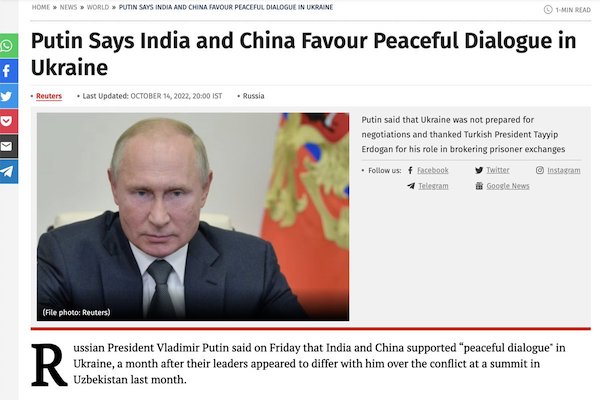

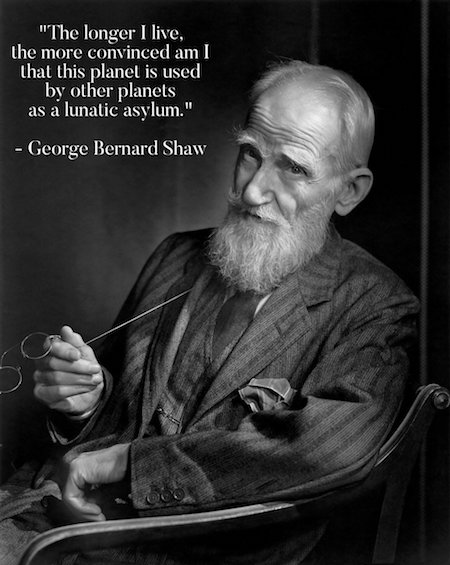


Jinglemerkel Santakaputt.
“.. at the very best only 25% to 30% of the “supposed” 90% reserves could possibly ever be timely recovered and only very slowly through a period of time stretched out in months. ”
• Germany’s Failing ‘Stored’ Nat-gas & LNG Experiment (Vilches)
Be that as it may, and as per the US State Dept. the NS1 and NS2 pipeline sabotage would supposedly have “no impact on European energy resilience”… then we should guess that Germans should just enjoy their Oktoberfest and — why not ? — also prepare to celebrate Christmas 2022 as if nothing negative had happened. On the contrary, if technical brain-power (currently AWOL) prevailed, then career strategists both sides of the Atlantic would now be spending all day and night trying to brush up hard on nat-gas management 101, better yet with a touch of sophomoric physics if all possible. And thus no-nonsense contingency plans would already be prepared and under deployment.
The reason is, as explained below, by EU and German design and commitment this is a failing EXPERIMENT. The planned ´stored´ nat-gas & LNG supply strategies have never ever been applied in equivalent circumstances with this strange methodology and humongous scale. Thusly, the 2022 German Oktoberfest will probably turn into a very acid sauerkraut with solid-beer icicles bizarrely hanging from the spouts. The Main Event would still be the December 2022 ´Jinglemerkel Santakaputt´ with nowhere to hide as all of Europe would be undergoing a thorough DE-industrialization process with sharp lowering of standards of living, and in many areas most probably with food issues, darkness & cold, deep frustration and un-heard-of unemployment with massive migrants wishing they had stayed back home (yes).
Be it from Qatar, Norway, or the US… or Russia…Liquefied Natural Gas cannot and will not save the day for Europe. First of all, LNG is and will be for a huge long time to come very scarce worldwide. Furthermore, there are very few loading and unloading terminals available at either end. For example, Germany has 0 (zero) LNG terminals. None. And even some loading terminals at source docks that are already built have serious operational problems or simply do not meet EU standards. Besides, there are not anywhere near enough LNG tankers available and very few are under construction. Who needed ugly dirty fracked LNG only 6 months ago ? And these infrastructure beasts take very long time to be conceived, approved, designed, funded, built, commissioned, certified, and offered to the market.
But it gets worse because many wrongly imagine that fracked sea-borne Liquified Natural Gas (LNG) is a substitute of nat-gas (not). First, it´s terribly more expensive, most explosive & dangerous to handle, and definetly way too scarce to meet European needs. Environmentally, LNG is “fracking” dirty and very cumbersome to liquefy, load and re-gassify with yet non-existant infrastructure at both ends… and is far more difficult to store and many times more costly to freight (Suez could be a limitation) from ackward overseas sources yet unknown (in tankers that do not yet exist) and only in risky seaborne batches onto many dozens of delivery terminals not yet built nor adequately planned for…

“Stockholm has rejected a plan to set up an official joint investigation team together with Germany and Denmark to look into the explosions [..] All three nations also refused to grant Russia access to the probe. ”
• Nord Stream Saboteurs Plunged EU Into ‘Energy Poverty’ – Moscow (RT)
The perpetrators behind the attacks on Nord Stream 1 and 2 natural gas pipelines have destroyed the European Union’s hope of secure and sustainable energy supply, Deputy Prime Minister Aleksander Novak has said on the sidelines of the Russian Energy Week forum. “Those who had plotted and perpetrated this terrorist act have basically plunged Europe into an energy poverty, so to speak,” Novak said on Friday, adding that the sabotage of the pipelines has all but “nullified the energy security” the EU has long sought to achieve. The former energy minister previously said that Russia is still able to supply natural gas to the European Union through a string of the Nord Stream 2 pipeline that remains intact. According to President Vladimir Putin the ball was now in the EU’s court on whether it wanted this to happen.
Putin also suggested establishing a new “gas hub” in Türkiye to move the transit volumes to the Black Sea region. Turkish President Recep Tayyip Erdogan backed the idea during the leaders’ meeting earlier this week. The Nord Stream 1 and 2 gas pipelines, designed to carry Russian natural gas directly to Germany, bypassing transit states, including Ukraine and Poland, abruptly lost pressure last month, following a series of powerful underwater explosions off the Danish island of Bornholm. Moscow has called the incident a terrorist attack and said the US, a long-time critic of Germany’s reliance on Russian energy, stood to benefit most from the disabling of the routes, both politically and economically. Washington has denied any involvement. However, Secretary of State Antony Blinken hailed the incident as a “tremendous opportunity” for Europe “to once and for all remove the dependence on Russian energy.”
In the meantime, Stockholm has rejected a plan to set up an official joint investigation team together with Germany and Denmark to look into the explosions, Reuters reported, citing a Swedish investigator. Sweden allegedly argued that its own findings are too sensitive to share even with other EU nations. All three nations also refused to grant Russia access to the probe. Russia used to cover over 40% of the EU’s gas needs prior to the start of the military operation in Ukraine and ensuing sanctions. Supplies dropped dramatically this year, exacerbating the energy crisis, as the bloc is seeking to cut itself off from Russian energy to reduce its dependence and punish Moscow. The US, meanwhile, ramped up its supply of LNG to Europe over the past months, up to a point where it now accounts for nearly half of the bloc’s LNG imports, nearly twice the share recorded in 2021.

..“burning” around $20 million per month on safeguarding the services from cyberattacks and jamming..”
• White House Comments On Paying For Starlink Service For Ukraine (RT)
The Pentagon and US allies are exploring all options to maintain Starlink satellite services for Ukraine after tycoon Elon Musk said he’s no longer willing to provide the communications for free, the White House press secretary has said. During a briefing on Friday, Karine Jean-Pierre was asked if the Biden administration had considered Musk’s request for the Pentagon to foot the bill for satellite internet communications in Ukraine. “Look, we understand the importance of these capabilities to ensure stable communications for Ukraine’s forces in particular,” Jean-Pierre responded. Starlink, operated by Musk’s SpaceX company, has become the main communication tool for Ukraine’s forces since the start of the conflict with Russia.
According to the spokeswoman, the Pentagon is “working with allies and partners to look at all options on how best to support those needs identified by Ukraine specifically.” Further questions on the matter should be referred to the Department of Defense, she added. Pentagon Press Secretary Sabrina Singh confirmed on Friday that “the department has been in communication with SpaceX regarding Starlink,” but declined to expand on the nature of those contacts. The DoD understands the “fragility” of satellite communications and their importance for Ukraine “not just on the battlefield, but within the country itself,” Singh said. On Thursday CNN published a letter, which it said SpaceX had sent to the Pentagon in September, demanding that it cover the cost of operating the system in Ukraine. The company is no longer “in a position to further donate terminals to Ukraine, or fund the existing terminals for an indefinite period of time,” the document read.
Musk reacted to the report by pointing out that his “competitors in space launch and communications,” Lockheed Martin and Boeing, had jointly received over $60 billion in defense contracts in 2021 alone. The entrepreneur explained in a series of tweets how keeping up “warfront” communications was much more difficult and expensive. He said his aerospace company was allegedly forced to divert “massive resources” and was “burning” around $20 million per month on safeguarding the services from cyberattacks and jamming. “Russia is actively trying to kill Starlink,” Musk claimed, warning that it could well succeed in its efforts. “Starlink is the primary communications system of the Ukrainian army on the war front. If anyone else wants this job, please be my guest,” he wrote.

“..the cost of the internet service in Ukraine, which could amount up to $ 400 million over the next year..”
• Musk Makes U-turn On Starlink Service For Ukraine (RT)
The SpaceX CEO Elon Musk has made an abrupt U-turn on his decision to stop funding the operation of the Starlink satellite communication service in Ukraine, where it has been actively used by the Ukrainian troops. Earlier, SpaceX reportedly asked the Pentagon to cover the cost of the internet service in Ukraine, which could amount up to $ 400 million over the next year. “We’ll just keep funding Ukraine government for free,” Musk wrote in a tweet on Saturday, adding that SpaceX would do it “even though Starlink is still losing money and other companies are getting billions of taxpayer dollars.” Earlier, the SpaceX CEO pointed to the fact that his “competitors in space launch and communications,” Lockheed Martin and Boeing, had jointly received over $60 billion in defense contracts in 2021 alone.
The entrepreneur also complained in a series of tweets that keeping up “warfront” communications was difficult and expensive. He also stated that Russia was “actively trying to kill Starlink,” forcing the US company to spend some $20 million per month on safeguarding the services from cyberattacks and jamming. On Thursday, CNN obtained a letter, where Musk supposedly informed the Pentagon his company was “not in a position to further donate terminals to Ukraine, or fund the existing terminals for an indefinite period of time.” SpaceX has donated around 20,000 Starlink satellite units to Ukraine since the beginning of the conflict in late February, providing internet connection and military coordination in chaotic battlegrounds that would otherwise be cut off from the web.
Kiev then praised the terminals as an “essential part of critical infrastructure” but continued to urge SpaceX to send thousands of additional terminals. Musk previously stated that SpaceX would have spent more than $100 million providing Starlink services to Ukraine by the end of the year. At the same time, the company reportedly admitted that most units it had sent to Ukraine were partially or fully funded by the American, British and Polish governments. SpaceX also recently came under fire over alleged Starlink outages across some regions of Ukraine, which some Ukrainian soldiers described as “catastrophic” loss of communications, according to Financial Times.

“The website has published personal details – names, addresses, photos, social media pages – of children, the youngest of whom is not even 10 years old..”
• Elon Musk Discovers Ukrainian ‘Kill List’ (RT)
Elon Musk has expressed concerns over a controversial website that lists supposed enemies of Kiev, amid claims that his own name briefly appeared on Mirotvorets following his threats to cut funding for Starlink satellite internet services actively used by the Ukrainian troops. “Is this list real? What’s the URL?” the SpaceX CEO tweeted in response to independent journalist Eva Karene Bartlett, who on Friday shared a viral screenshot that claims to show his persona added to the notorious database. “I’ve been speaking and writing about this list for years, after being placed on it in 2019, but now that Musk is on it, after Roger Waters and others, perhaps the ‘peacemaker’ list might itself be killed…,” Bartlett wrote.
Elon Musk’s name was not on the list as of Saturday, and it remains unclear whether it indeed briefly appeared on Mirotvorets. Some reports alleged his profile was swiftly scrubbed from the database, while Ukrainian activists claimed the picture was fake and called it a Russian provocation. Many of Musk’s followers were surprised to find out that he’d never heard of Mirotvorets before, and bombarded him with examples of prominent public figures on the database, some already marked “liquidated.” Musk admitted it was “concerning,” after checking with Wikipedia that such a list does indeed exist, and was allowed to stay online since 2014. Mirotvorets, or “Peacemaker,” is a supposedly independent database of individuals whom anonymous moderators consider to be threats to Ukrainian national security.
The site denies being a kill list; rather, it claims to be a source of information for law-enforcement agencies and “special services” about pro-Russian terrorists, separatists and war criminals, among others. It allegedly has links to Ukraine’s Interior Ministry. The Mirotvorets project gained some notoriety in 2015, when writer and historian Oles Buzina and politician Oleg Kalashnikov were assassinated in Ukraine after their profiles appeared on the website. In 2016, EU officials and journalist groups condemned Mirotvorets for leaking data on more than 4,000 members of the media. Human rights activists have discovered that the website features the personal details of 327 children, prompting the Russian authorities to share their concerns over this “huge injustice” with UN Secretary General Antonio Guterres. The website has published personal details – names, addresses, photos, social media pages – of children, the youngest of whom is not even 10 years old yet, according to the head of the Foundation for the Fight against Repressions.

“..American and Ukrainian politicians—along with their loyal supporters—are not actually interested in real support for the Ukrainian people. What they want is compliance and consensus for their foreign policy endeavors.”
• The Ideological Tyranny of Liberal Interventionism (Ghorayeb)
Since the outbreak of the Russo-Ukrainian War this year, celebrities and public figures have been unanimous in their moral support for Ukraine. Some, like Telsa CEO Elon Musk, have gone further than words, lending significant material support to the cause. His spacecraft company, SpaceX, paid $80 million to provide Ukraine with the services of Starlink, which, among other things, enables Ukrainian troops to operate drones and communicate with each other. Musk has explicitly declared himself “pro-Ukraine.” A normal person would therefore view Musk, a self-professed centrist, as supporting an ally of the American government against the ravages of war.
However, Musk’s material and moral contributions mattered little when he proposed a peace plan outside the bounds of the liberal internationalist consensus. Russia, Musk tweeted, should be allowed to keep Crimea, and Ukraine should end its bit to join NATO and adopt a neutral status. Musk’s diplomatic musings swiftly drew the ire of the Ukrainian government and its supporters. It also attracted resentful remarks from his own government. Senator Lindsey Graham went on an angry rant against Musk that culminated in a call to cut electric vehicle tax credits, which he mistakenly thought benefitted Tesla. Elon’s car buyers haven’t qualified for a tax credit since 2018.
One may wonder why there is such intense outrage against Musk or why expressing an anti-war opinion is akin to providing support for Putin. Why is it that one tweet with a peace proposal has become a more powerful expression of Musk’s position than $80 million worth of material aid to Ukraine and numerous declarations of support? The reason is that American and Ukrainian politicians—along with their loyal supporters—are not actually interested in real support for the Ukrainian people. What they want is compliance and consensus for their foreign policy endeavors. Media outlets have noticeably censored and attempted to silence opinions that deviate from a consensus that stops short of extravagant government spending on weapons for Ukraine and unwavering admiration for Zelensky.
[..] Ideally, there would be a moral consensus against killing innocent people with room for civil political debate about the root causes of these wars, how we can de-escalate or end ongoing violence, and how to prevent them in the future. One could have contested Musk’s proposal with a counterargument about whether it is the optimal way of reaching what most people agree is wrong: killing innocent people. But this would only be possible if everyone involved in the discourse was concerned with achieving the end of the war and pursuing truth. However, the U.S. foreign policy elite—who have nakedly pursued their interests through intervention in the region before—and Ukraine’s corrupt president do not show an interest in either.

No, electric cars won’t solve the problem..
• European Auto Industry In Trouble – S&P (RT)
With energy prices in EU skyrocketing, a harsh winter could shut down production in parts of the automotive sector, S&P Global Mobility reported this week. According to a report titled “Winter is Coming,” the “combined black swan events” of the Covid-19 pandemic and the war in Ukraine have stretched automotive supply lines, especially with regard to semiconductors. As a result, the industry “may face extensive pressure” from energy costs in the coming months. Starting in the fourth quarter of 2022 through 2023, quarterly production from Europe-based auto manufacturing plants is forecast to be between 4 and 4.5-million-units. However, “with potential utility restrictions,” that output could fall to as low as 2.75 million units per quarter, the report says.
The researcher projected significant supply chain disruptions from November through spring, citing mandatory energy rationing for the region’s auto producers and suppliers. “For an industry already struggling with low inventories of vehicles in dealer showrooms, an additional crisis could be incapacitating on a global scale,” it said. Edwin Pope, S&P Global Mobility principal analyst for materials and lightweighting, pointed out that “If you look through the supply chain – particularly where there’s any metallic structure forming through pressing, welding or extrusion – there’s a tremendous amount of energy involved.
“Total energy usage in these companies could be up to one-and-a-half times what we’re seeing in vehicle assembly today. Anecdotally, we’re hearing that some of this manufacturing capacity is becoming so uneconomic that companies are simply shutting up shop.” He also told Reuters that S&P Global Mobility’s analysis was conducted before the sabotage on the Russian Nord Stream gas pipelines late last month. “Events like that will inevitably shift the scales towards the lower end of what we have predicted, especially in terms of how long it takes to repair things of this nature,” Pope warned.

Google translate.
“They only wanted to continue if the State imposed a production obligation on them, took over the liability and thus also the risk of prosecution.”
• How 4,000 People From Groningen Managed To Turn Off The Gas Tap (NOS)
Only the threat of a criminal case would force oil companies Shell and Exxon to extract less gas in Groningen after the severe earthquake in 2012. A retired criminal court advised action group Groninger Soil Movement (GBB) to use heavy artillery. Public hearings by the Groningen parliamentary committee of inquiry for natural gas extraction have shown in recent weeks how great the impact of that advice has been. The committee closed those hearings yesterday. The GBB first filed a report on behalf of 4000 members in vain: the Public Prosecution Service saw no reason to prosecute NAM. The people of Groningen then asked the court in Arnhem to force the Public Prosecution Service to conduct such a criminal investigation.
In April 2017, the court ruled in their favor. The Public Prosecution Service should investigate whether gas extraction company NAM, a subsidiary of Shell and Exxon, has endangered Groningers. The case is still pending and has cost the GBB two tons in lawyers’ fees, but the effect was maximum. Ben van Beurden, the CEO of Shell, calls that criminal case a “game changer”. His company was suddenly accused of endangering people’s lives by extracting gas. His employees could be personally prosecuted for this. Shell and Exxon informed the Ministry of Economic Affairs that they wanted to stop gas production in Groningen. They only wanted to continue if the State imposed a production obligation on them, took over the liability and thus also the risk of prosecution.
Every other gas field in the world would be closed if it turns out that winning is not safe, both Rolf de Jong of Exxon and Van Beurden of Shell said. But they also realized that it was impossible to stop because Dutch households, hospitals and much industry depend on Groningen gas. It was one of the most startling issues to surface in the public hearings. Until then, the image was that former Minister Wiebes of Economic Affairs had single-handedly decided in 2018 to end gas extraction in Groningen in 2030. That was inescapable, he said, because the State Supervision of Mines then found that gas extraction might have to stop altogether to limit the risk of even more earthquakes. Moreover, the reinforcement operation, the reinforcement of unsafe houses, was completely out of control.
Many more houses had to be reinforced than the ministry wanted and, according to gas extraction company NAM, was necessary. Furthermore, it appeared from the interrogations that the cabinet was not in a hurry with the request of the oil companies. They feared that Shell and Exxon wanted to take the opportunity to also change the historic agreements on profit sharing. The two multinationals and the State divide the gas revenues, with the largest part of the profit (90 percent) going to the State. These are agreements that were made when gas extraction started in the early 1960s.

“..appreciated 22% against the Japanese yen, 13% against the euro and 6% against emerging market currencies since the start of this year..”
• Strong US Dollar Is A Headache – IMF (RT)
As countries around the world struggle to bring down soaring inflation, the weakening of their currencies relative to the US dollar has made that fight even harder, the International Monetary Fund (IMF) has said. In a report published on Friday, the IMF elaborated how countries should respond to a strong dollar. It highlighted that the greenback is at its highest level since 2000, having appreciated 22% against the Japanese yen, 13% against the euro and 6% against emerging market currencies since the start of this year. “Such a sharp strengthening of the dollar in a matter of months has sizable macroeconomic implications for almost all countries, given the dominance of the dollar in international trade and finance,” the lender wrote.
It further indicated that while the US share in world merchandise exports has declined from 12% to 8% since 2000, the dollar’s share in world exports has held at around 40%. “On average, the estimated pass-through of a 10 percent dollar appreciation into inflation is 1 percent. Such pressures are especially acute in emerging markets, reflecting their higher import dependency and greater share of dollar-invoiced imports compared with advanced economies.” According to the report, approximately half of all cross-border loans and international debt securities are denominated in US dollars. While emerging market governments have made progress in issuing debt in their own currency, their private corporate sectors have high levels of dollar-denominated debt.
“As world interest rates rise, financial conditions have tightened considerably for many countries. A stronger dollar only compounds these pressures, especially for some emerging market and many low-income countries that are already at a high risk of debt distress,” the IMF said. The report suggested that the appropriate policy response is to allow the exchange rate to adjust, while using monetary policy to keep inflation close to its target. “The higher price of imported goods will help bring about the necessary adjustment to the fundamental shocks as it reduces imports, which in turn helps with reducing the buildup of external debt. Fiscal policy should be used to support the most vulnerable without jeopardizing inflation goals,” it said.

“.. transactions in foreign currencies incur conversion costs, and when they are in US dollars, “the conversion fee is doubled..”
• Central Bank of G20 Host Indonesia Rails Against US Dollar (RT)
Indonesia’s central bank has spoken out against the use of the US dollar in export-import transactions, and called for a switch to local currencies in international payments to reduce dependence on the greenback, news portal Tempo.co reported on Friday. Most of Indonesia’s international trade transactions are conducted in foreign currencies, predominantly the dollar, according to Nugroho Joko Prastowo, head of Bank Indonesia’s Solo Representative Office, as cited by local media. “90% of export-import settlements are in US dollars, when in fact the value of Indonesia’s direct exports to the US is only 10%, and the value of US imports is only 5%,” the official told journalists after opening a session on ‘Utilizing Local Currency Settlement (LCS) to Increase Export-Import Efficiency of the Greater Solo Region’.
He said transactions in foreign currencies incur conversion costs, and when they are in US dollars, “the conversion fee is doubled,” suggesting that a system of bilateral payments in local currency could solve the problem. The official said four countries have agreed to utilize LCS with Indonesia so far, namely China, Japan, Thailand and Malaysia. “Singapore has been plotted, although it has not been fully implemented, and soon the Philippines. Currently, the implementation of LCS with Saudi Arabia is also being explored,” he said. Indonesia will be hosting the G20 international forum, bringing together 19 countries and the European Union, on November 15-16 on the island of Bali. Indonesia currently holds the presidency of the group of leading economies.

‘small fortresses with high walls’
• Will Beijing Join With Russia vs The West Or Keep Its Powder Dry? (Hvatkov)
The 20th National Congress of the Chinese Communist Party, the pinnacle event in the country’s political life and held only every five years, kicks off in Beijing on October 16. Experts will be tuning in to pick up any signals related not only to the political standing and prospects of China’s leader Xi Jinping, who is likely to run for a third term, but also to the way the country is planning to build its relations with the US and Russia in the future. A new Mao – a new revolution? Western speculation believes that the event could signify a triumph for Xi as he will most likely remain at the helm of the party for a third term. Should that happen, it would go against the tradition which has formed in Chinese politics over the last 30 years. Up to now, the reins of power in the country were handed over to a new generation of leaders at the end of the second term. Thus, such a move would herald a new era in the history of modern China. Starting from 2018, it has become increasingly clear that Xi is going to defy this tradition. That year, amendments were made to the Chinese Constitution lifting the two-term limit on the presidency.
[..] Experts doubt that Beijing will abandon its policy of prudence and caution, and there are a number of reasons for that. “Much of what Vladimir Putin said in his speech at the accession ceremony is in line with China’s own attitudes. But when China talks about similar matters, the wording is often much broader and generally ambiguous. Naturally, Beijing is aware that its confrontation with the West is getting more intense. However, at the level of rhetoric, China tries to avoid being as explicit when expressing its position. Moscow and Beijing have similar viewpoints in that both believe the policies of the West are flawed, as they create artificial barriers to global trade, financial and economic ties and investment opportunities,” Lomanov said.
“China also criticizes the West for building ‘small fortresses with high walls’, referring to blocs like NATO and AUKUS, exclusive alliances designed to unite Western countries and those loyal to them, effectively cutting off everyone else. “China has always stressed the need to reform the existing system of global governance, as it is deeply unfair to developing countries. Despite all its leaps in economic development, China considers itself both a socialist country and the world’s leading developing nation. Therefore, at a practical level, the positions of Russia and China are indeed very close,” the expert from IMEMO RAS believes.

“anyone who thinks NATO will protect us is wrong.”
• Orban Warns Of ‘Protracted War’ (RT)
Prime Minister Viktor Orban said that Hungary needs an army “capable of striking and ensuring peace” in case the continent plunges into chaos over the ongoing conflict in Ukraine and the European Union’s failed policies towards Russia.“We cannot, like ostriches, bury our heads in the sand. We must accept the reality: if this continues, the economy of the continent will collapse, people will be in danger, and it seems that we must prepare for a protracted war,” Orban said on Saturday in Budapest, at a swearing-in ceremony of military volunteers. The Hungarian leader noted that “there are nations that have already begun making preparations and we can’t fall behind in this either,” as cited by the Budapest Times. “In times of war, we need an army capable of striking and capable of ensuring peace!” he told a group of some 250 young recruits, praising them as the “excellence of our nation.”
He added that Hungary needs “a few more” such battalions and announced new recruitment campaigns to be launched from December. Hungary, which is heavily dependent on Russian energy, has maintained a relatively neutral stance during the conflict in Ukraine, condemning the use of force by Moscow, but refusing to supply weapons to Kiev. Orban has frequently criticized the EU’s sanctions on Russia, calling them counterproductive. Over the past months, he has repeatedly called for “the failed policy of Brussels” to be changed, noting that the sanctions “didn’t fulfill the hopes that were pinned on them,” while Europe is “slowly bleeding.” Back in March, Orban said that he felt he couldn’t count on the US-led military bloc when it comes to real action concerning the country’s security, saying “anyone who thinks NATO will protect us is wrong.”

Long overview.
• Hiding Hunter’s Laptop (Hanson)
The definitive book on Cold War era information warfare from our Communist foes is Dezinformatsia: Active Measures in Soviet Strategy. In that book, disinformation is defined as “false, incomplete, or misleading information that is passed, fed, or confirmed to a targeted individual, group, or country.” The American public was subjected to a campaign right out of the Soviet playbook designed to obfuscate the Biden family corruption. It was concocted and deployed by a loosely connected conspiracy of the media, current and former government officials, the Biden campaign, and the social media tech companies. As soon as the story broke October 19, 2020 virtually every major and subsidiary media outlet reported on it with negative sentiment using one of two major themes:
First they argued that it was stolen. The immediate response was to deny the provenance of the laptop which was that Hunter Biden had abandoned it at a repair shop. They began questioning that story and throwing out the completely unfounded speculation that it may be stolen. This smear hit directly at John Paul Mac Isaac, the owner of the repair shop. He provided the contents of the laptop first to law enforcement and when they took no action, to Rudy Giuliani who eventually gave it to the New York Post. The bulk of the media accounts discussing the story in the next 24 hours included a reference to the “stolen” theme.
The second argument offered was that the laptop was not verified. This was the most defensible part of the smoke screen. Most of the media outlets did not have the hard drive so they could say they had not verified it themselves. However, the New York Post showed numerous items in their reporting that would lead any reasonable person to understand the laptop most likely belonged to Hunter Biden. During the taping of an interview with President Trump soon after the story broke, Lesley Stahl of “60 Minutes” ran with this narrative. Stahl denied that the Delaware computer suspected of belonging to Hunter Biden’s was even a story at all after claiming it has been “investigated and discredited.”
“It can’t be verified,” Stahl said of the laptop. “It can’t be verified.” “What can’t be verified?” Trump said. “The laptop!” It had been investigated, but unlike Stahl’s false claim to the contrary the laptop was not discredited. All of the investigations and verification measures showed the same thing: This was Hunter’s laptop, the information was his and it was devastating. One of the truly amazing things is the longevity of the media’s willingness to continue to ignore and suppress this story. It was not until March of 2022 that the New York Times and Washington Post both admitted the long-known fact that Hunter’s laptop was Hunter’s laptop.
Their admissions were not because of some ethical epiphany. They were merely part of a new aspect of the disinformation campaign about the likely charges coming from the ongoing investigation into Biden family corruption. They are based on the disinformation tactic popularized by John Ehrlichman, an aide to President Richard Nixon during Watergate. It’s called the modified limited hangout. In other words, mixing partial admissions with additional misinformation in order to confuse people.

1000 times. The fact checks look like pretzels.
• Yes, They Claimed The Vaccines Would Prevent Transmission (Chung)
No, you’re not crazy. Yes, they claimed the vaccines would prevent transmission. One of the most bizarre lies being told this week in response to Pfizer executive Janine Small’s testimony to EU Parliament is that, actually, the Covid vaccines were never supposed to stop the spread of the virus. Asked by Dutch MEP Rob Roos whether the company had tested its vaccine on “stopping the transmission of the virus” before it rolled out globally, Ms Small said “no” because “we had to really move at the speed of science to really understand what is taking place in the market”. “And from that point of view we had to do everything at risk,” she said. In a viral Twitter video which has now been viewed more than 12 million times, Mr Roos described the response as “scandalous”, arguing “millions of people worldwide felt compelled to get vaccinated because of the myth that ‘you do it for others’”.

Mr Roos said the admission removed the entire basis for vaccine mandates and passports which “led to massive institutional discrimination as people lost access to essential parts of society”. “I find this to be shocking, even criminal,” he said. Of course, fact checkers were not happy. This is not the bombshell it is being presented as, they argue, because it was public knowledge that the primary outcome measured in Pfizer’s clinical trials was reducing risk of disease, but not transmission. Moreover, as the Therapeutic Goods Administration stressed, “transmission effects” are “not an approved indication of any Covid-19 vaccine” currently available in Australia. In Australia, politicians and health officials held millions of people hostage for months, lecturing and threatening them to get vaccinated to regain their “freedoms”.
The vaccines were the “way out” of the pandemic, they were not to just to protect ourselves but to “protect others”, they would “stop the spread”, and not getting vaccinated was “selfish”. Vaccine passports, the “vaccinated economy”, were necessary so people who “did the right thing” would feel “safe” knowing they weren’t “mixing” with the unvaccinated, who were a “risk to the community”. By late 2021 and early 2022, as Omicron became dominant and it was clear vaccinated people were still catching and spreading the virus, the messaging changed. “Stopping the spread? What are you talking about? It’s about reducing hospitalisation and death. We have always been at war with hospitalisation and death.”
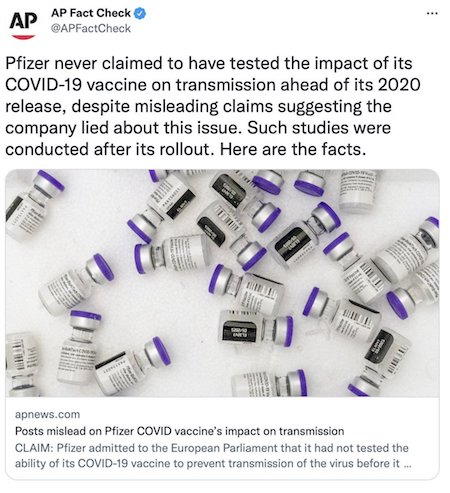

Malone takes a turn away from vaccines.
• Twitter is a Weapon, not a Business (Robert Malone)
The research and consulting firm “Edify” has recently disclosed results from a client-driven research project designed to analyze the relationships between the law firm of Wilson Sonsini Goodrich & Rosati (WSGR), Twitter, Biden White House, Obama White House, James Baker, Alexander Macgillivray, Vijaya Gadde, and Anthony Fauci’s daughter, Alison Fauci, who is an engineer at Twitter. The first two of these analyses have been published here and here, and at least one more is anticipated in the near future. The findings clearly document the deep web of relationships tying together WSGR, Twitter, the censorship of President Trump, President Barack Obama, President Joe Biden and the Office of Science and Technology Policy and Google. All of these run through Alexander Macgillivray. Macgillivray currently serves the Biden White House OSTP (Office of Science and Technology Policy) as the Principal Deputy U.S. CTO (Chief Technology Officer).
What Edify documents is the web of relationships which have guided the censorship practices of the US Government-Technology/Social media alliance. As I read through the first of the two analyses, titled “EDIFY: CRITICAL NEXUS: TWITTER, WSGR, MACGILLIVRAY & WHITE HOUSE” (September 15, 2022), my interest was piqued by the documentation of the deep connections between Twitter, Biden, Obama, and the central role of Twitter as a tool for information and psychological warfare. Precisely the hot button issue that I discussed on the Joe Rogan Experience when I used those three words “Mass Formation Psychosis,” which triggered such a visceral reaction from the Silicon Valley technology giants, the Trusted News Initiative, and Peter Breggin.
Based on relationship mapping, Edify draws the following conclusions: “Twitter is the central node and the keystone to understanding. Twitter’s inherent value to the elites, political class and federal apparatus writ large is found in its ability to engage in perception management, which is a technical term more commonly referred to as “psyops” or “psychological warfare”. Twitter engages in perception management in its capacity to establish and manipulate reality by means of actively determining and shaping the content on its platform. Twitter consumers can receive filtered content or are prevented from receiving, seeing or having the ability to publish content altogether.
The de facto censorship occurs primarily along the lines of determining and enforcing community standards, guidelines and rules for user engagement. The evidence is clear that the decisions here appear to fall along clearly identifiable political lines resembling two-tier justice. Content determination, algorithmic manipulation and politically motivated censorship of off-reservation messaging and political opposition are all evidenced examples of how Twitter engages in perception management or appears to do so. Two evidenced domains of Twitter’s engagement in perception management include censoring content relative to COVID-19 and the Hunter Biden Laptop story.” [..] The quote above is just the beginning of the analytical conclusions, which include this gem:
“Alison Fauci is a Twitter software engineer who by title, would possess the technical capabilities and access to function as outlined in the testimony. Beyond Alison Fauci’s functionality as a conduit or intermediary for Dr. Anthony Fauci and his principals at the NIH/NIAID and up, Alison Fauci is by title technically positioned to potentially extract private Twitter user data on designated people including political opposition. Any such extracted data could be fed back upstream to the Obama, Biden cartel et al. It’s also further evidence of a distinct pattern of nepotism threading through all of these matters where spouses and children play critical roles determined by their placement into the broader construct. Alison Fauci was positioned to be a possible conduit of information in an intermediary fashion relative to the Anthony Fauci cohort and its preferences for Twitter’s censorship policies for reliable COVID content damaging to the COVID construct of enterprise fraud and that official narrative.”




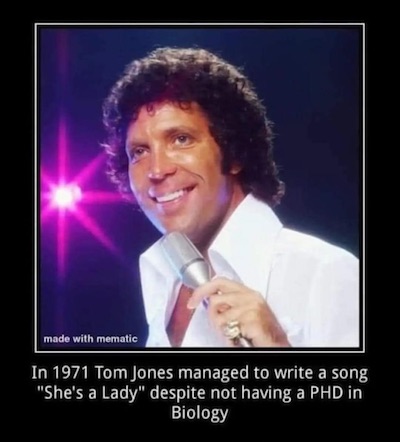

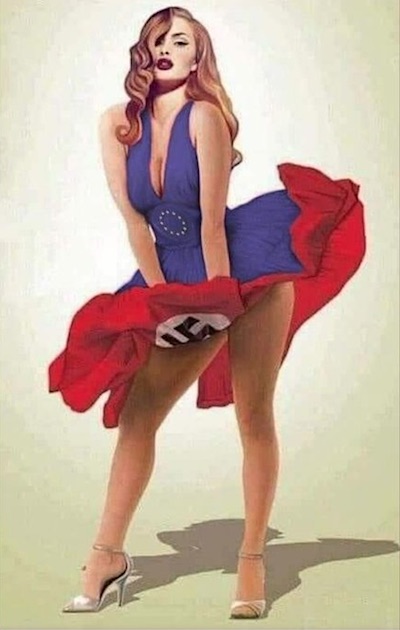

HEART
When Australian farmer Ben Jackson couldn’t attend his Aunt’s funeral in 2021 due to Covid restrictions, he laid out grain for his Sheep in the shape of a heart in order “that she could see it through the clouds”.
❤️
— Michael Warburton (@MichaelWarbur17) October 15, 2022

Cater snake
A caterpillar that camouflages itself as a snake when it feels threatened. pic.twitter.com/BjpvVs5o60
— Fascinating (@fasc1nate) October 15, 2022


The Alpine Ibex’s preferred habitat is the rocky region along the snow line above alpine forests, where it occupies steep, rough terrain at elevations of 1,800 to 3,300 metres

Magician
https://twitter.com/i/status/1581272429527179265


A tiger’s tongue is so coarse, it can lick flesh to the bone. Photo: Tony Zerna

Support the Automatic Earth in virustime with Paypal, Bitcoin and Patreon.










Home › Forums › Debt Rattle October 16 2022